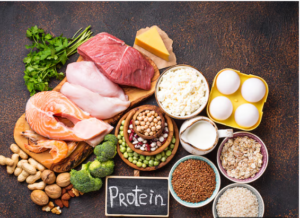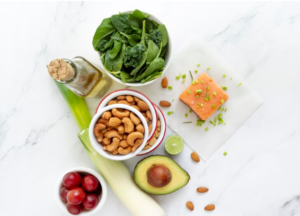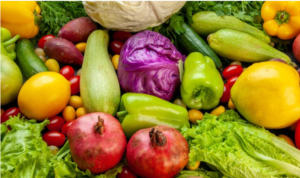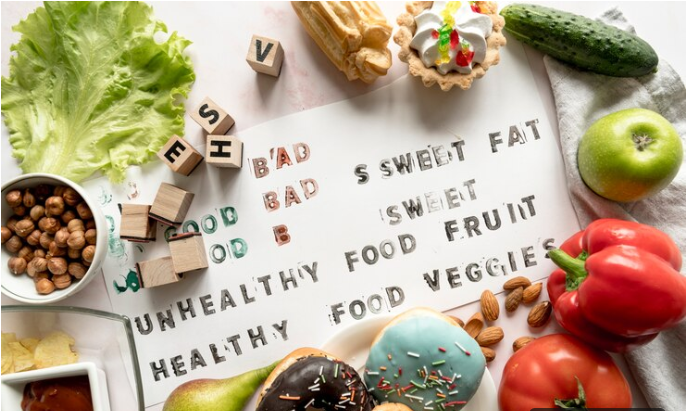It becomes even more important to focus on the food we eat, especially as we get older.
Proper nutrition helps seniors stay healthy, strong, and independent for as long as possible.
Making sure they get the right nutrients can make a big difference in their daily life.
So why not? Let’s learn some easy-to-follow nutrition tips for seniors that will help them feel their best.
-
Let them Eat Protein

Did you know our muscles weaken as we age? Yes it happens.
This makes it harder to move around to do daily activities.
But, one of the best ways to fight muscle loss is by eating enough protein.
Make sure their food is packed with protein, which is essential for maintaining muscle strength.
Also, protein provides healthy fats and iron, which help keep the energy levels up.
Lastly, make sure to include sources of protein like chicken, fish, beans, and nuts in their meals.
-
Stay Hydrated

Although hydration is often overlooked, it’s just as important as eating well.
Older adults can be at a higher risk for dehydration, which can lead to headaches, tiredness, and even confusion.
Stay hydrated by drinking plenty of water throughout the day.
Mind you, water isn’t the only means of hydration.
Along with water, you can hydrate with soups, herbal teas, and fruits like watermelon, which have a high water content.
To stay hydrated, you’re increasing your energy levels, keeping your skin healthy at its best, and supporting digestion.
-
Include Healthy Fats in Your Diet

Don’t be deceived, fat may seem like something to avoid, but not all fats are bad.
Some foods have healthy fats, like those found in olive oil, avocados, and fatty fish.
Healthy fat is very important for brain and heart health.
By including a variety of healthy fats in your diet, you will lower the risk of heart disease and support overall health.
Instead of butter, why not try to cook with olive oil and eat a handful of nuts or seeds for a healthy snack.
-
Fruits and Vegetables

Fruits and vegetables are packed with vitamins, minerals, and fiber, which are all essential for seniors.
These would help keep your digestive system working properly, boost your immune system, and improve your overall health.
Don’t be scared to fill half of your plate with fruits and vegetables at every meal.
Also, varieties like leafy greens (spinach, kale), and oranges can help support heart health and prevent disease.
-
Concentrate on Calcium and Vitamin D for Strong Bones

Getting enough calcium and vitamin D is so important because as we age, our bones can become weaker.
Calcium helps keep your bones strong, while vitamin D helps your body absorb the calcium you need.
Dairy products (milk, cheese, yogurt), leafy greens, and fortified cereals are great sources of calcium.
For vitamin D, try to get some sunshine or eat fatty fish like salmon, mackerel and fortified foods.
A balanced diet with plenty of calcium and vitamin D can help prevent bone fractures and keep you active.
-
Be careful of Your Salt Intake

Eating too much salt can lead to hypertension, which can increase the risk of heart disease.
It’s important to be careful with salt when you’re adding it to your meals, especially if you already have health conditions.
Try to use spice and herbs to flavor your food instead of salt.
Fresh herbs like parsley, basil, and thyme can add great flavor without adding extra sodium.
Lastly, check labels when buying packaged foods to avoid hidden salt.
-
Companionship and Support with Meals

One of the most important things seniors need is companionship.
Staying alone can be lonely, not to talk if eating meals alone.
If you’re having trouble preparing meals or getting the right nutrition for your loved ones, having a compassionate caregiver can make a big difference.
A caregiver can help you plan meals, prepare food, and make sure you’re getting the right nutrients.
If you live alone or have limited mobility, caregivers can also offer social interaction, making mealtime more enjoyable and less isolating.
They can help you stick to your personalized care plan, while achieving both nutritious and tasty meals.
Conclusion
As you grow older, your nutritional needs may change, but it’s important to stay on top of them.
By focusing on a balanced diet, seniors can maintain better health, stay independent longer, and enjoy a higher quality of life.
So, why not contact Elixonn Healthcare today as we provide the best care for your seniors all around.
Don’t forget, eating well is key to staying strong and active, no matter your age!




